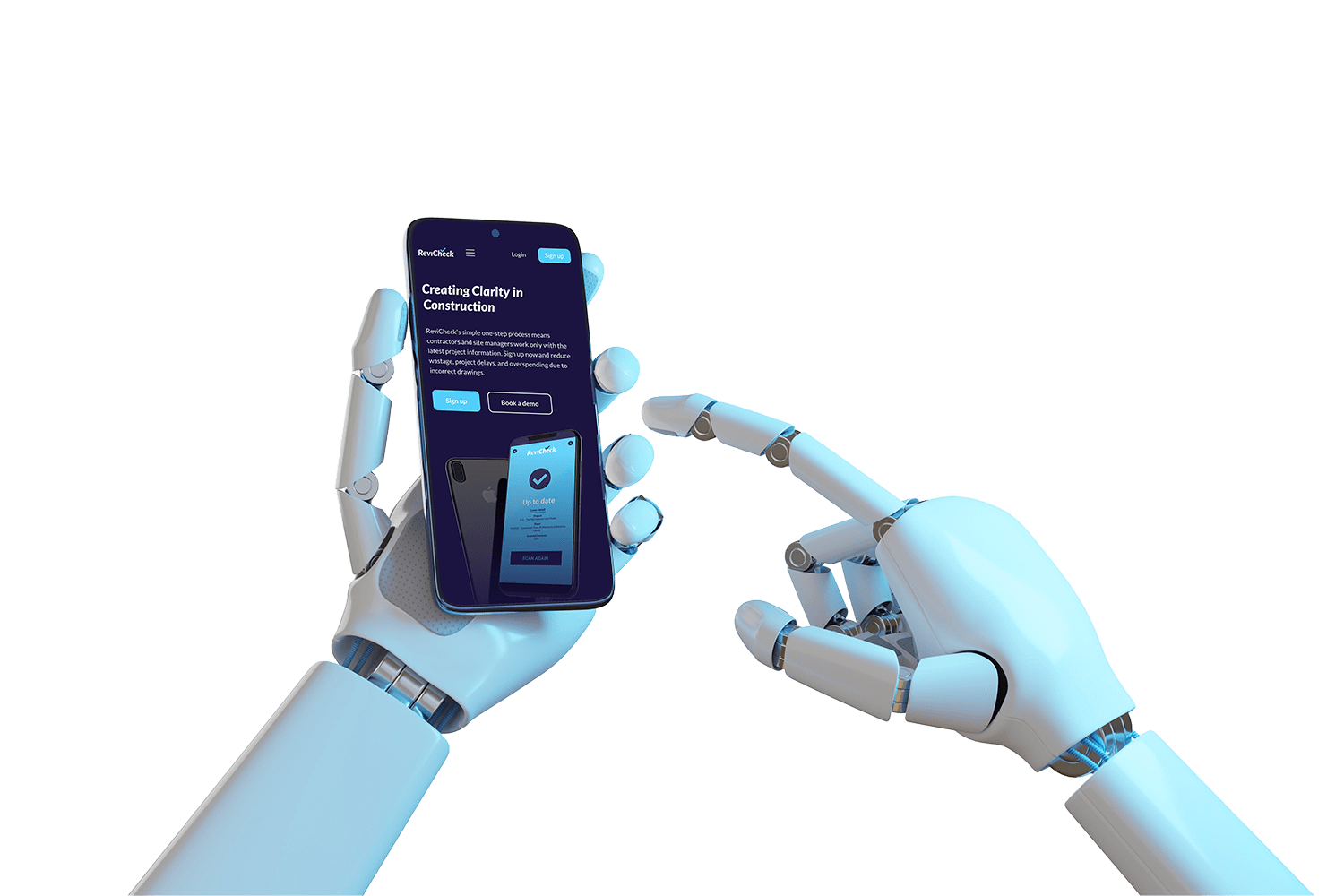In the fast-paced area of digital marketing, staying ahead of the curve is essential. A significant reason for change in this landscape currently is the integration of Artificial Intelligence (AI). Understanding the many ways in which AI can affect digital marketing campaigns is essential for businesses striving for success in the ever-evolving digital landscape.
This article delves into the profound impact of AI on digital marketing campaigns, exploring the diverse ways in which this cutting-edge technology is revolutionising strategies for success.
1. Advanced Analytics and Informed Decision-Making
The integration of advanced analytics in digital marketing has introduced a new era of strategic decision-making, offering businesses many benefits. Firstly, the ability to process vast amounts of data at lightning speed empowers businesses with insights into consumer behaviour, preferences, and market trends. Through sophisticated machine learning algorithms, patterns emerge, providing a deep understanding of what resonates with your target audience.
Informed decision-making becomes a cornerstone of success as businesses use these insights to tailor their strategies with precision. The data-driven approach minimises the risk of guesswork, allowing for strategic optimisation of campaigns in real-time. By identifying high-performing channels, refining target demographics, and optimising content based on actual user interactions, businesses can allocate resources effectively, maximising return on investment.

Furthermore, the continuous analysis of data through advanced analytics ensures adaptability to evolving market dynamics. Businesses and marketers can stay ahead of trends, anticipate shifts in consumer behaviour, and proactively adjust strategies. Ultimately, the benefits of advanced analytics extend beyond just optimisation; they empower businesses to be agile, strategic, and responsive to customer trends.
2. Personalisation and Enhanced Customer Experience
The integration of personalisation has become a powerful strategy for businesses, profoundly impacting the overall customer experience. One significant advantage of personalisation is its ability to understand and respond to individual customer behaviours. AI algorithms analyse user data, enabling businesses to create bespoke content and communications that align precisely with each customer’s preferences. This tailored approach enhances engagement, as customers receive content that is not only relevant but also resonates with their specific interests.

Moreover, the implementation of AI-driven chatbots contributes to real-time assistance, a feature highly valued by modern consumers. These chatbots not only address queries but also provide personalised recommendations based on past interactions and purchase history. This level of tailored support not only streamlines customer service but also fosters a sense of connection, enhancing overall customer satisfaction.
In the competitive landscape of ecommerce, personalisation becomes a crucial differentiator. Businesses that invest in understanding their customers on an individual level can create unique and memorable experiences. Whether through personalised offers, targeted product recommendations, or exclusive content, the benefits of personalisation extend beyond immediate transactions, establishing a foundation for sustained customer loyalty and positive brand perception.
As businesses continue to navigate digital marketing, the integration of personalisation stands out as a key driver for enhanced customer experiences and long-term relationships.
3. Automation in Digital Marketing Campaigns
Automation has become a cornerstone in the realm of digital marketing, revolutionising the way campaigns are planned, executed, and optimised. The adoption of automated processes brings forth a multitude of benefits, reshaping the efficiency and effectiveness of digital marketing strategies.
Firstly, automation significantly streamlines repetitive tasks, saving valuable time and resources for marketing teams. Processes such as email marketing, social media posting, and website traffic analysis can be automated, allowing marketers to focus on more strategic aspects of their campaigns. This efficiency not only enhances productivity but also enables teams to tackle more complex and creative aspects of digital marketing.
In the realm of advertising campaigns, automation plays a pivotal role in programmatic advertising. This technology utilises algorithms to purchase and place ads in real-time, optimising the targeting and delivery of advertisements. Automated ad placements ensure that messages reach the most relevant audiences, maximising the return on investment (ROI) for digital marketing campaigns.
Furthermore, automation brings a level of precision and consistency that is challenging to achieve manually. It minimises the risk of human error, ensuring that campaigns adhere to predefined parameters and schedules. Consistency in execution contributes to a seamless customer experience, enhancing brand perception and trust.
Automation also empowers marketers with the ability to conduct A/B testing and data analysis at scale. Algorithms can rapidly process and analyse large datasets, providing valuable insights into campaign performance. This data-driven approach allows for quick adjustments and optimisations, ensuring that digital marketing strategies remain agile and responsive to changing market dynamics.
Ultimately, the benefits of automation extend beyond efficiency gains. By automating routine tasks, marketers can allocate more time to strategic thinking, creativity, and innovation. As the digital landscape continues to evolve, embracing automation becomes not only a necessity but a key driver for staying competitive and achieving success in the ever-changing world of digital marketing.
4. AI-Powered Content Creation
AI-powered content creation represents a transformative leap forward in digital marketing, offering a myriad of benefits that redefine how businesses produce and disseminate content. Firstly, the efficiency gains are substantial; AI algorithms can generate content at unprecedented speeds, reducing the time and resources traditionally required for content creation. This enables businesses to maintain a consistent and timely flow of content, crucial for engaging audiences in the fast-paced digital landscape.

Moreover, AI ensures content quality by employing Natural Language Processing (NLP) to understand and replicate human language. This results in content that is not only grammatically sound but also contextually relevant, resonating more effectively with the target audience. Additionally, AI can tailor content to specific demographics, preferences, and cultural nuances, contributing to enhanced personalisation and audience engagement.
Furthermore, AI-driven content creation goes beyond text, extending to multimedia elements such as images and videos. These tools can analyse trends and user behaviour to generate visually appealing and shareable content, elevating the overall impact of digital marketing campaigns. Ultimately, by leveraging AI for content creation, businesses can maintain a competitive edge, ensuring their messaging remains not only prolific but also attuned to the evolving expectations of their audience.
5. SEO Optimisation Enhanced
AI-powered SEO optimisation in digital marketing offers a multifaceted approach that goes beyond conventional strategies, revolutionising how businesses navigate the competitive online landscape. One notable benefit is the precision and efficiency AI brings to keyword targeting. Through machine learning algorithms, AI can analyse vast amounts of data to identify not only primary keywords but also long-tail and latent semantic indexing (LSI) keywords, ensuring that content is optimised for a diverse range of search queries.
AI-driven SEO strategies also enhance content relevance through natural language processing. This allows search engines to better understand the context and intent behind user queries, improving the matching accuracy between search results and user expectations. Consequently, businesses can create content that not only ranks higher but also resonates more effectively with their target audience.
The adaptability of AI in SEO is another significant advantage. Search engine algorithms are dynamic and subject to frequent updates. AI-equipped tools enable businesses to quickly adapt their strategies to algorithm changes, ensuring continued optimisation and adherence to evolving best practices.
Furthermore, AI contributes to personalised search results, a critical aspect in the era of user-centric digital experiences. By analysing user behaviour, preferences, and search history, AI can tailor search results to individual users, enhancing the likelihood of engagement and conversion.
AI can also enhance backlink creation through the sourcing of directories across the web. AI-powered backlink creation can allow you vast amounts of data to identify high-quality link opportunities tailored to each client’s specific needs and goals. Here is an example of a web directory that can improve your site’s performance on search engines: web directory free.
In summary, the integration of AI into SEO optimisation empowers businesses to improve upon traditional search strategies. From enhanced keyword targeting to adaptive strategies in response to algorithm changes, AI-driven SEO not only boosts rankings but also amplifies the overall effectiveness of digital marketing campaigns in reaching and engaging target audiences.
6. Embracing AI for Social Media Marketing
The benefits of integrating AI into social media strategies helps not only efficiency but also areas including personalisation, engagement, and data-driven insights.
One notable advantage lies in the implementation of AI-powered chatbots for real-time customer interaction. These chatbots can engage with users, answer queries, and provide personalised recommendations. This not only enhances customer satisfaction by delivering instant responses but also frees up human resources for more strategic tasks.

Moreover, AI contributes significantly to sentiment analysis, gauging user emotions and reactions across social media channels. By analysing the tone and context of user comments, businesses gain valuable insights into public opinion. This enables proactive reputation management, allowing companies to address concerns promptly and foster positive sentiment.
In the UK, where social media plays a central role in consumer engagement, AI-driven analytics tools are invaluable. These tools can process vast amounts of social media data, uncovering patterns and trends that inform marketing strategies. Understanding when and what content resonates most with the target audience allows for the creation of more effective and timely social media campaigns.
AI also plays a crucial role in content curation and scheduling. By analysing user behaviour and preferences, AI can recommend the most relevant content for different audience segments. Additionally, AI-driven tools optimise the timing of posts, ensuring maximum visibility and engagement.
Furthermore, the personalisation capabilities of AI extend to targeted advertising on social media platforms. By analysing user data, AI algorithms can identify the most relevant audiences for specific advertisements, maximising the impact of ad campaigns and improving return on investment.
Embracing AI for social media marketing provides businesses with a strategic edge in the competitive digital landscape. From enhancing customer interactions to optimising content and advertising strategies, AI’s role in social media is transformative, shaping the future of how businesses connect and resonate with their audience on these influential platforms.
7. Combatting Fraud with Artificial Intelligence
Utilising Artificial Intelligence (AI) for combating fraud in marketing presents a robust defence mechanism that goes beyond traditional methods. The benefits of integrating AI in fraud detection and prevention are major, contributing to a secure and trustworthy environment for businesses and consumers.

One significant advantage is the speed and efficiency with which AI algorithms can analyse vast amounts of data. In real-time, AI systems can scrutinise transactional data, user behaviour, and other aspects to identify patterns indicative of fraudulent activities. This swift detection is crucial in preventing financial losses and mitigating potential damage to a brand’s reputation.
Moreover, AI-driven fraud detection systems continually learn and adapt. Through machine learning, these systems evolve to recognise new and emerging patterns of fraudulent behaviour, staying ahead of increasingly sophisticated fraud tactics. This adaptive capability ensures a proactive defence against ever-evolving fraudulent schemes.
AI also helps safeguard online transactions, preventing fraudulent activities such as fake clicks, impressions, or transactions. Ad fraud, a prevalent concern in the digital advertising space, is effectively addressed by AI algorithms that can distinguish between genuine and malicious interactions, preserving the integrity of digital marketing campaigns.
AI’s role in fraud prevention extends to identity verification as well. By analysing multiple data points, including user behaviour and device information, AI systems can create a comprehensive profile that aids in authenticating user identities. This not only prevents unauthorised access but also enhances the overall security of user accounts and transactions.
In summary
In conclusion, the integration of Artificial Intelligence (AI) into digital marketing campaigns marks a transformative change, creating an era of innovation and strategic improvements. The benefits of using AI across various areas of digital marketing are diverse and impactful, positioning businesses at the forefront of efficiency, personalisation, and adaptability in the ever-evolving digital marketing landscape.
As businesses navigate the complexities of the digital landscape, the relationship between AI and digital marketing emerges as an imperative for success. The fusion of cutting-edge technology and strategic acumen positions forward-thinking businesses to not only meet but exceed the expectations of their digitally savvy audience. In this era of continual evolution, embracing AI in digital marketing is not just a choice but a necessity, shaping success in the competitive digital era.




